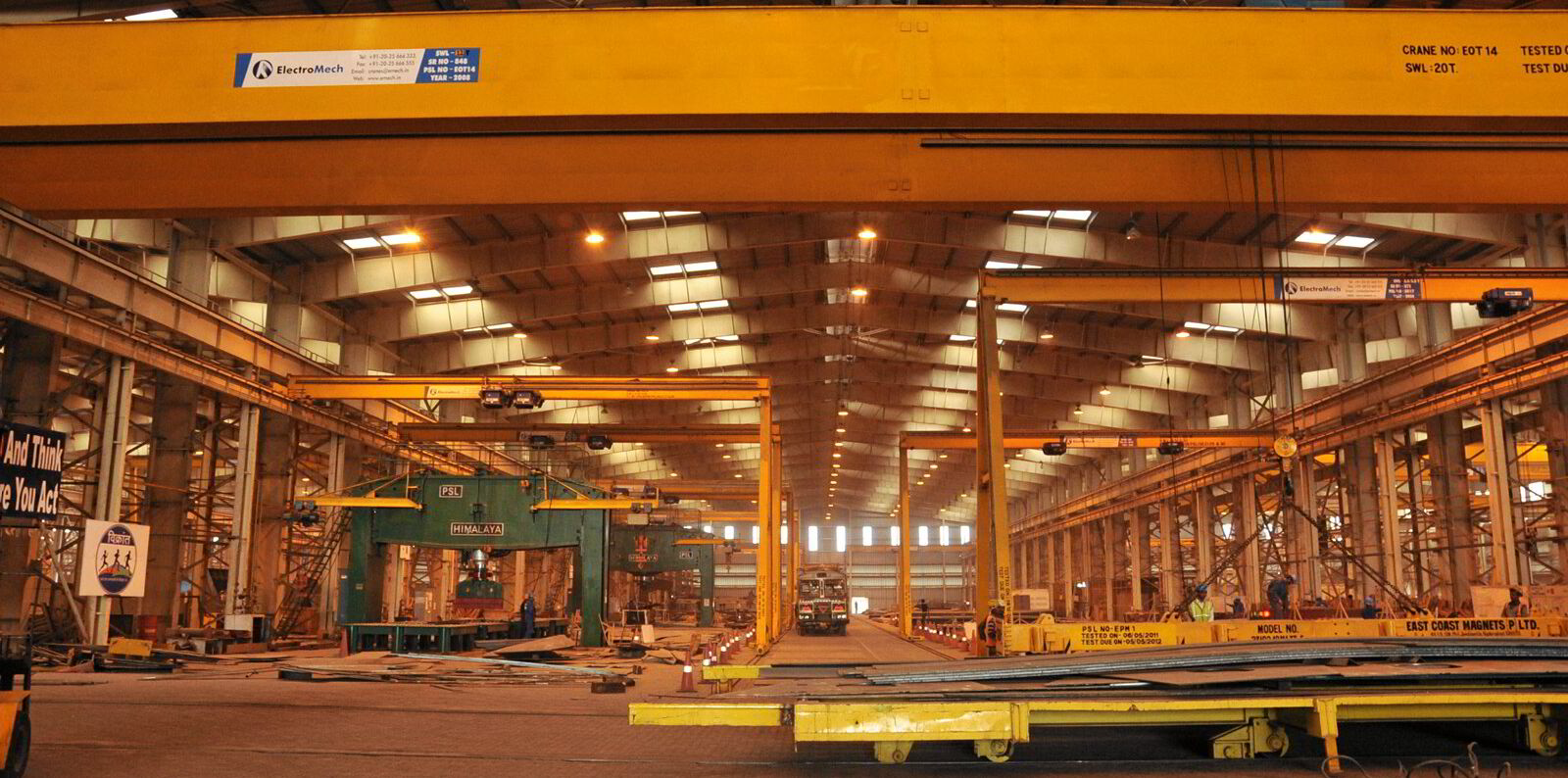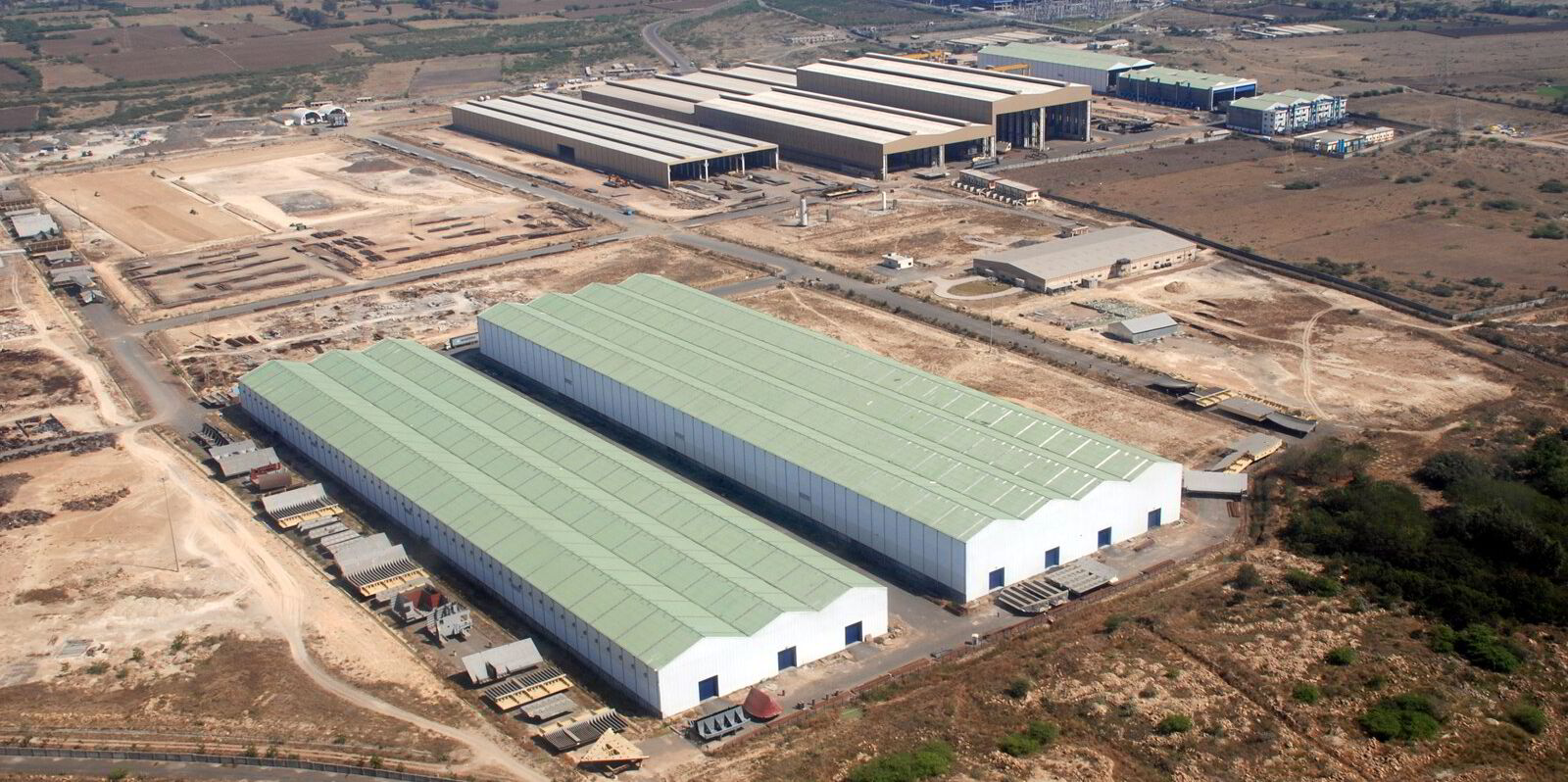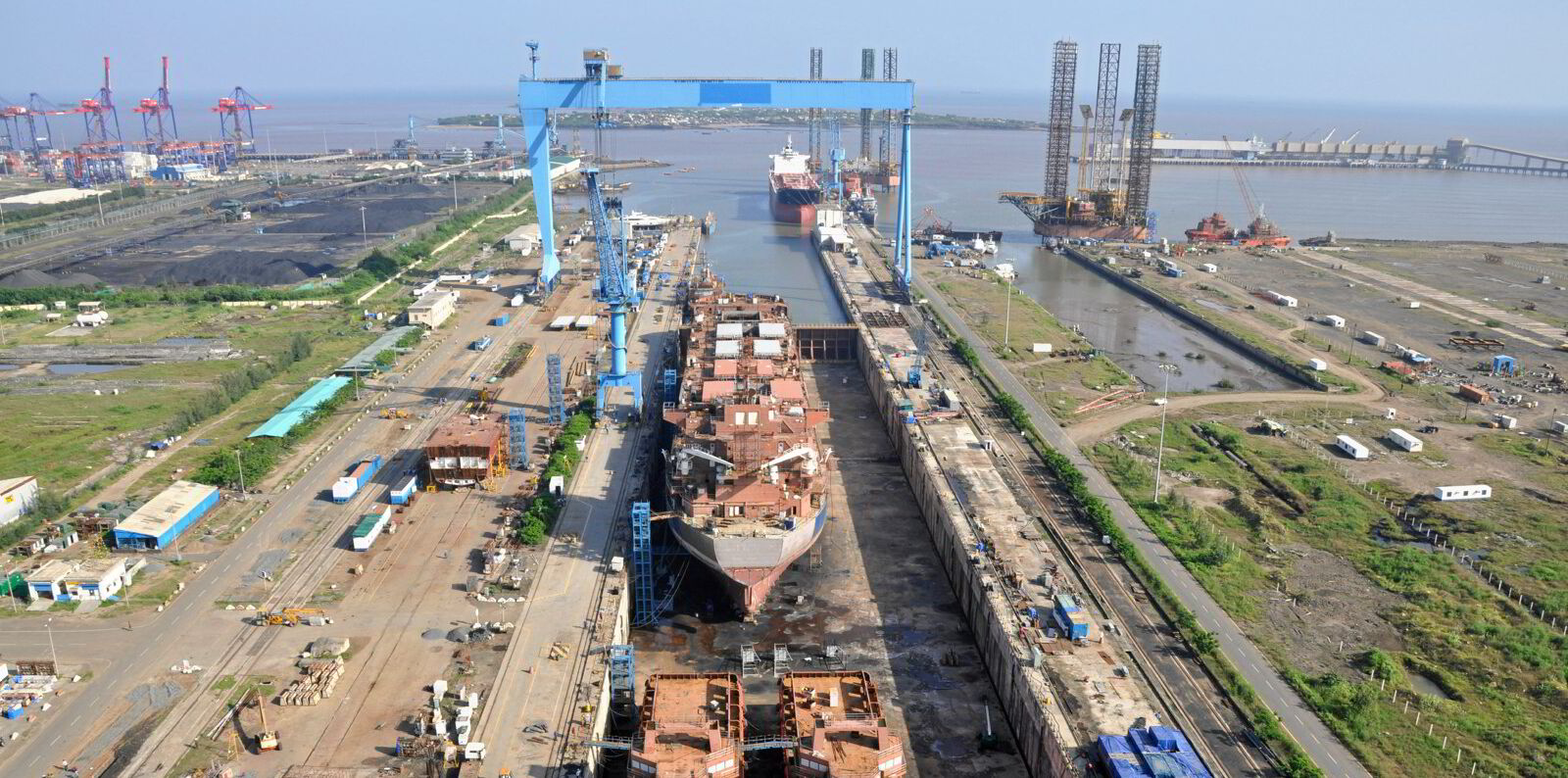India’s Pipavav shipyard will undergo a $500m makeover to return it to its former glory, according to its new owners, Swan Group.
The yard will focus on building bulkers, tankers and gas carriers as what was formerly India’s largest private shipbuilder by capacity pushes for a significant return to the business.

Vivek Merchant, director of Swan Group’s shipyard division, told TradeWinds: “With $250m infused, Swan has an additional $250m investment planned over the next two years, underscoring our unwavering commitment to becoming a global leader.”
The resurgence comes as India has tabled significant plans to become one of the world’s top shipbuilders.
Merchant believes the yard can play a key role in helping India achieve its wider shipbuilding goals as it vies to gain a foothold in the global market.
Merchant’s bold ambitions today throw the yard’s troubled past into stark relief.
Pipavav had fallen from the ranks, having declared bankruptcy twice since 2015 and entering a corporate insolvency resolution process in January 2020.
But in 2022, Swan Energy and Hazel Infra stepped in.
Under a resolution plan, Hazel Mercantile acquired the then Reliance Naval and Engineering — formerly Pipavav Ship Dismantling and Engineering — last December.
That deal marked a new beginning for the shipyard. And today, Merchant believes opportunities abound.
“The size and strategic location of Swan’s Pipavav Shipyard offers a unique opportunity to build a maritime ecosystem within the shipyard,” he said.
“With over 300 acres of contiguous land available and direct access to Pipavav Port, we are poised well to attract several equipment OEMs [original equipment manufacturers], to establish manufacturing facilities that can serve Indian and global markets,” Merchant added.
According to Intermodal, India has built more than 1,300 vessels in the modern era. But only 27 were significant in terms of dwt.
Four shipbuilders — Cochin Shipyard, Chowgule Shipyard, Mazagon Dock Shipbuilders and Garden Reach Shipbuilders and Engineers — were responsible for the construction of the 27 vessels and are all active.
Pipavav aims to join the yards as soon as possible.
“As part of the newbuilds, we are focused on bulkers, tankers, gas carriers, and defence vessels of up to 330 metres,” he said.
“We are also looking to produce smaller vessels like tugs and offshore supply vessels. We also plan to prioritise green and hybrid propulsion vessels and are keen to provide best-in-class solutions to our customers.”
The yard’s restoration comes at a pivotal moment in India’s quest to become a major player in the global shipbuilding industry.
China, Japan and South Korea have a stranglehold on the market, accounting for almost 90% of the world’s shipbuilding capacity with Indian yards contributing about 1%.
However, Merchant believes the market outlook presents a unique opportunity for India.
Due to massive newbuilding backlogs, major shipbuilding nations have been grappling with significant delays and owners have been forced to look for alternate destinations.

India has been emerging as a competitive alternative. The revival of Pipavav would give the country the capacity to offer readily available shipbuilding slots, a significant contrast to long waits seen in other shipbuilding nations, Merchant said.
“India continues to provide a cost-effective labour force, with rates significantly lower than those in China, the Philippines, Korea, and Japan — by as much as two to four times.
“This cost efficiency, coupled with comparable productivity for select vessel types, positions us to compete effectively on a global scale,” Merchant said.
Located in Gujarat, Pipavav is close to international trade routes and the Indian Coast Guard command in the region.
Compared to its shipbuilding rivals, such as the Philippines, Pipavav is geographically closer to Europe, which helps drive down transport costs for offshore blocks and commercial vessels.
Merchant said Swan Group is focused on restoring the yard and upgrading the equipment to make it “future-ready”.
He added: “We have focused specifically on critical infrastructure such as the dry dock and Goliath crane, as well as obtaining necessary certifications to ensure the shipyard is fully compliant with industry standards.
“We have also been working closely with the OEMs for health assessment and repairs of the machinery at our workshops.”
Ship repair operations began this month, while the shipbuilding and offshore fabrication businesses will go live in December.
Founded in 1997, Pipavav shipyard has a dry dock measuring 662 metres by 65 metres and a fabrication capacity of 144,000 tonnes per year.
“Swan aims to become a global leader in shipbuilding and offshore fabrication while delivering advanced green-tech solutions and developing an integrated maritime ecosystem within our yard, Merchant said.
“Today, we are ready to build globally competitive vessels, with confirmed delivery slots and expedited timelines.”

Troubled history
In March 2015, 17% of Pipavav shipyard was acquired by Indian conglomerate Reliance Group in a $130m deal.
Subsequently, an open offer to acquire additional shares to control 25% of the shipyard was launched. When the offer was completed, Reliance Infrastructure held 36% equity in Pipavav.
It was renamed Reliance Defence and Engineering in 2016 before being renamed Reliance Naval and Engineering (RNaval) in 2017.
During its prime, RNaval had managed to successfully deliver five panamax bulk carriers.
Pipavav was also the first non-government private sector yard to obtain a licence and contract to build warships in India and receive a naval shipbuilding order.
Despite the shipyard’s early orders from the Indian navy, due to delays in delivery and the cancellation of offshore vessel orders, bankruptcy eventually nipped RNaval’s growth in the bud.
In 2019, Reliance Group was unable to make its payment on loans with its bankers initiating bankruptcy proceedings to recover an estimated $1.2bn in debt.(Copyright)





